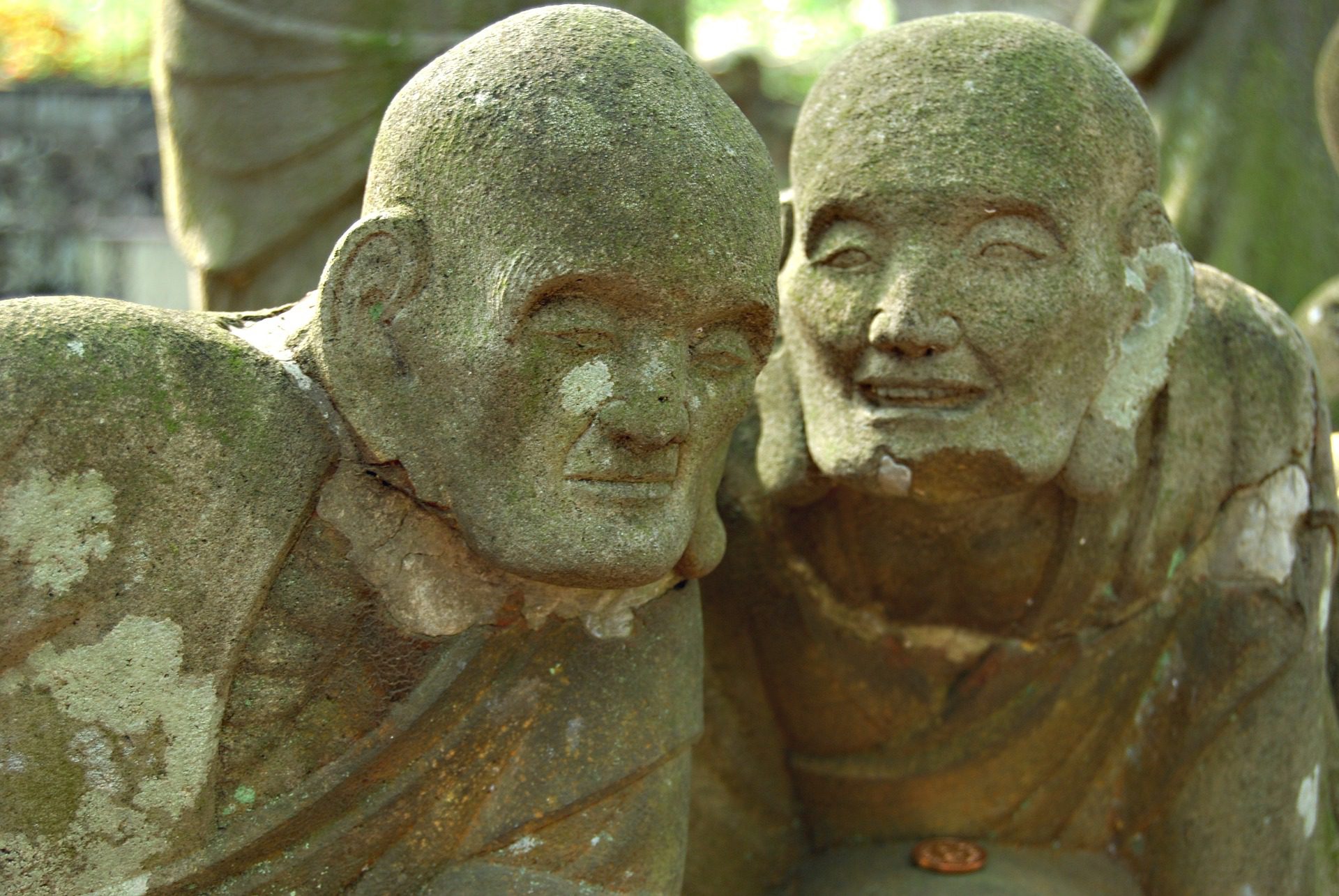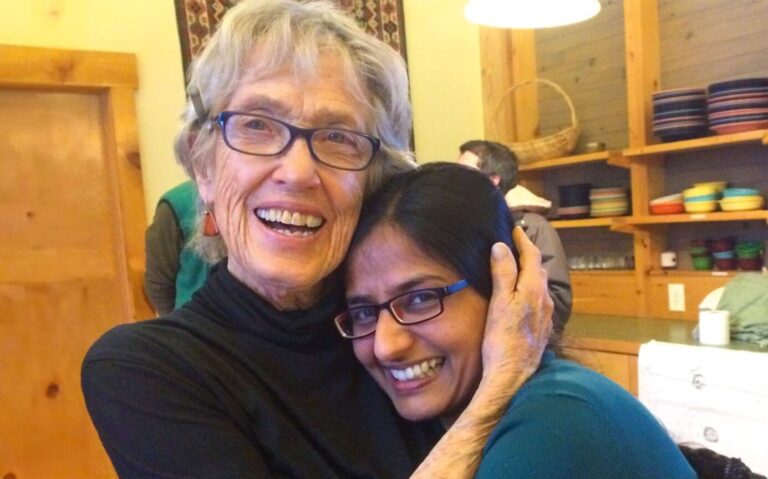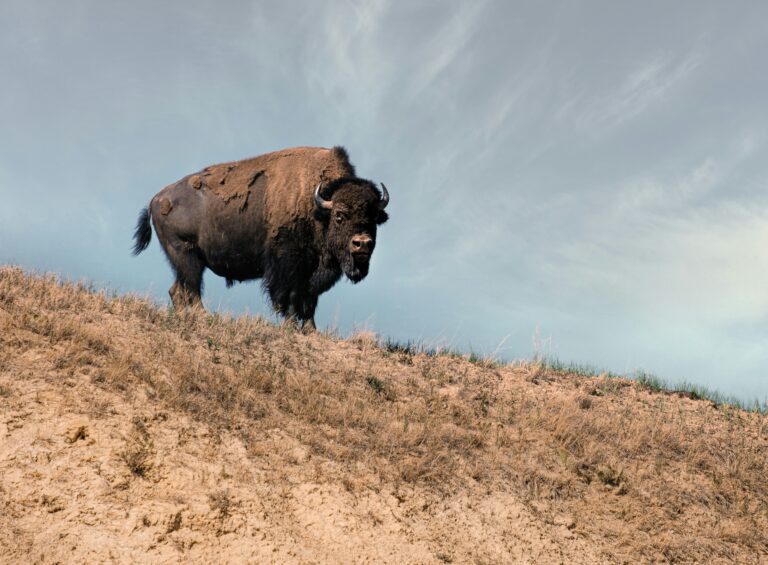Dave Braun: Why is it so important for us to break the silence and to talk about the climate crisis?
Chas DiCapua: Climate change is a type of harm. It’s harming living beings. We want to stop it, slow it, change it, reverse it. To do that, there needs to be action. Talking can’t just be a good idea, because how we’re living and how we’re all entrenched in living is causing it. There’s a lot that needs to happen to shift our way of living. If no one’s talking about it, no one’s going to do anything about it. Talking has to come first. On one level it’s important because of our vows, our precepts, however we take them, of non-harming. It’s really about non-harming, in terms of talking about it, because talking precedes action.
Dave Braun: It can feel like it could be a form of harm to push this issue where it’s not wanted. How do you think about that?
Chas DiCapua: I think one way that can really guide us in talking about this is the five considerations that the Buddha talked about: Is it truthful? Is it timely? Is it based in kindness and compassion for the other person? Can it be heard? Is the delivery gentle or easy to hear, and not harsh? The Buddha said all five of these need to be present. He went on to explain that if just four are present but one is absent, then the Tathagata does not talk. It is only when all five are present that the Tathagata talks. That’s a great frame to help.
Dave Braun: How can one monitor all five of these conditions in these conversations that can get quite intense?
Chas DiCapua: One thing that’s really helpful, whenever we’re in relationship and it starts to get a bit dicey or kind of heated, is to really be aware of the body and to ground in the body. That helps everything go from being in one’s head and anxious to more settled and grounded. That’s very helpful whether it’s about climate change or anything else.
There are different approaches you can take to try to talk to someone. You can be really specific and say, “I want to talk about climate change” at a certain time to a specific person. Another approach is just to have the intention and to be open when the context presents itself. For example, the weather’s been really warm lately. People tend to say, “Oh, what a beautiful day.” I’ll respond, “Yeah, it is a beautiful day, and too bad… etc etc.” This way it doesn’t come so out of the blue.
It’s about connecting with the other person, not about winning the conversation because that’s not going to change anyone’s mind.
We can also just ask people, “Are you open to talking about climate change? I have a couple of things to say about climate change.” Or, “I have a question for you, is that okay? Are you open to having a conversation right now?” We can just ask.
Dave Braun: Do you worry that always being the one who points out climate change will lead others to perceive you as a downer?
Chas DiCapua: I’m happy to be the one who points out climate change, but it doesn’t have to be a downer. I’ll say, “Yeah, it’s a beautiful day. I’m actually enjoying it. And there’s this little part in the back of my head that can’t enjoy it because I know that we’re really not going in a great direction. Here we are in the middle of October and we haven’t even come near a frost yet. Like not even close.” I feel I can do it without being a downer, but I don’t worry about that.
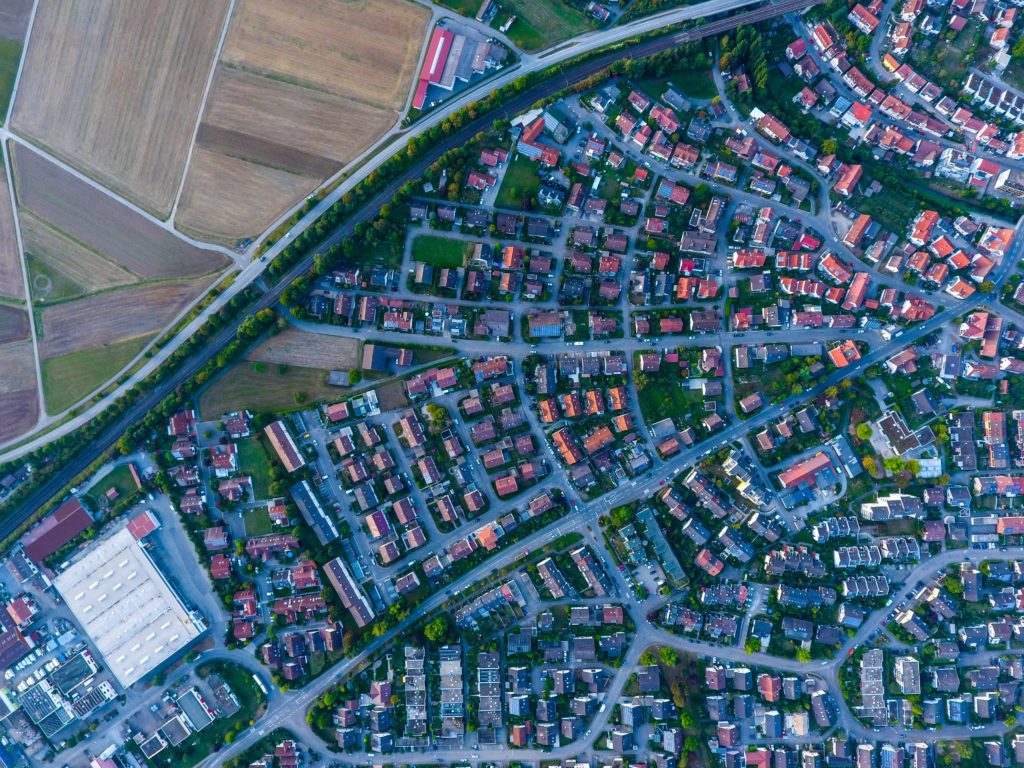
Dave Braun: Do you think it would be helpful to have somewhat of a script to take into these conversations, or do you think it’s better to let responses flow more organically?
Chas DiCapua: A script isn’t terrible, but everyone’s different. I go more the organic route. Scripted things might be alright as long as they aren’t meant to just be ways to win the conversation, but are instead meant to be helpful in connecting. Is it a retort or is it something that will help connect? To me, that’s really what it’s all about. It’s about connecting with the other person, not about winning the conversation because that’s not going to change anyone’s mind.
Dave Braun: If you’re going to take the more spontaneous route, you kind of have to have a sensibility of your comfort and connection with a certain person and the situation.
Chas DiCapua: Absolutely, and one’s capacity and skill. Some people are just more skilled and have a greater capacity to connect across lines. I think it’s important to know where one’s limits are. It’s also important to understand one’s connection with this other person. What can this relationship hold right now in terms of conflict or in terms of opposing views?
Dave Braun: How to assess that seems tricky.
Chas DiCapua: You do your best. At least you have the intention, instead of going in with guns blazing. You can recall past experiences with a certain person. For example, you’ve talked about other things before and it’s been a bit bumpy. Or you can check in with how you feel about the person, not just in the relationship, but really look at your own heart and see if there are any places where you are holding a grudge against this person or where you have judgments around them? Is that going to rise up in the conversation?
Dave Braun: Let’s say someone is in conversation and is mindful of multiple ways of responding to something. If the responses all align with one’s core intentions, it can sometimes be unclear which response might be the most skillful. Sometimes it feels like mindfulness isn’t enough in those moments.
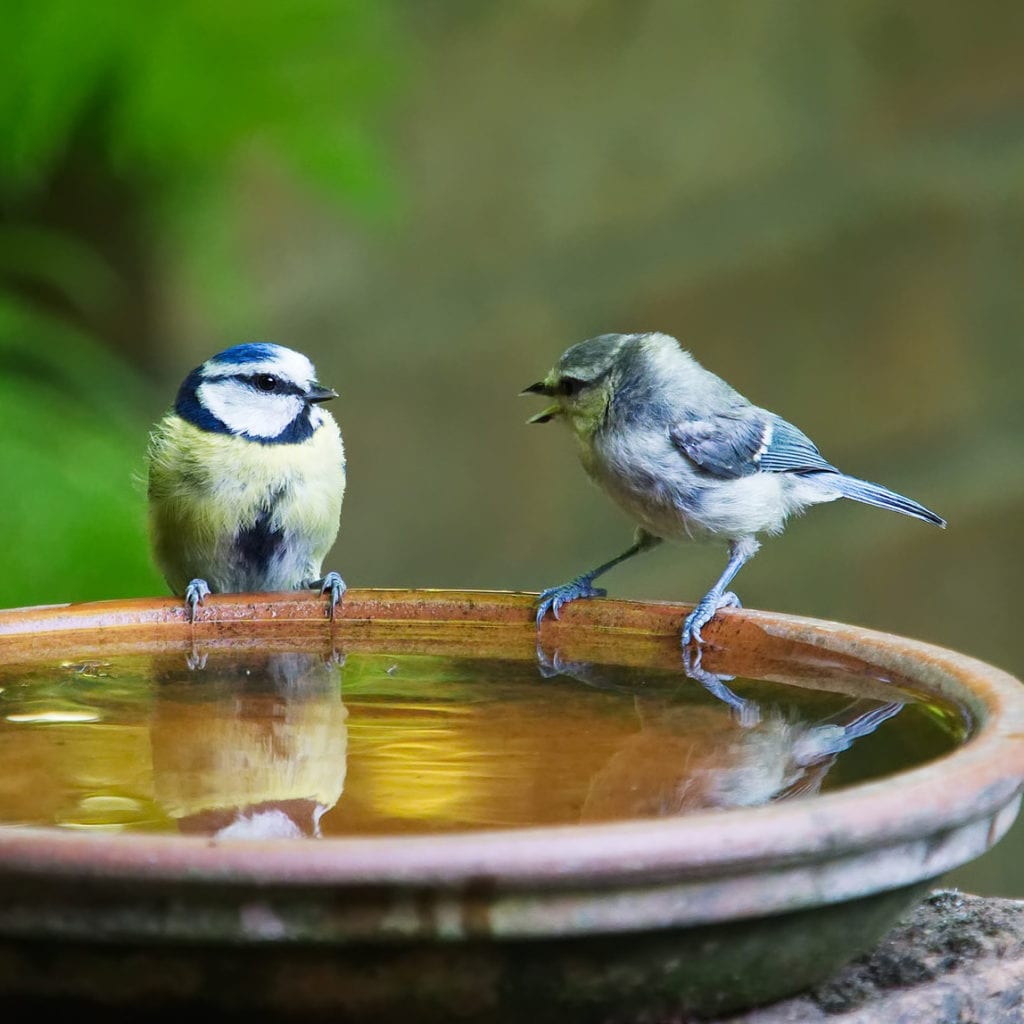
Chas DiCapua: Well, don’t forget: in conversation it’s okay to pause. You don’t have to have a snappy retort. We can pause, even for many seconds. We can even say, “I have a couple of different responses to that, I’m going to see which one I might want to share.” We forget we can do that.
It’s really about non-harming in terms of talking about it because talking precedes action.
Dave Braun: With something as big as the climate crisis, two common responses are either to shut it out or fall into despair. What do you think is the role of conversation on climate change in light of how quickly we can vacillate between denial and despair?
Chas DiCapua: It’s like the psyche is trying to protect us from something that it thinks might be overwhelming. That level of denial is not really healthy. It’s not helpful for the person. That’s another reason to talk about it. Even if you don’t get the other person to talk, they’re listening to you. The important thing is that it’s being talked about. It starts to open up for the possibility that, oh, this is actually something that can be talked about. It’s like modeling—it’s helpful for people who aren’t ready to talk. It can nudge them in that direction.
Dave Braun: How can I approach someone else in conversation about the climate crisis if I haven’t emotionally processed the gravity of it for myself?
Chas DiCapua: Being vulnerable is certainly a good way to connect. If you’re wanting to talk with others, as opposed to preaching, doomsaying and putting it in their face, talk about: Where can we all relate on this? And that yeah, this is hard. Again, we’re all entrenched in this lifestyle that is causing climate change. How do we feel that emotionally? Let’s talk about that. How’s that for you to know that just how we’re living is causing this? That’s hard when I really sit down and let that in. Maybe we can meet the other person there, with what’s actually happening right now. Talk about the ways that we don’t want to look at it.
Dave Braun: Do you see a need to work with our own emotional discomfort around climate change before trying to share that vulnerability with somebody else?
Chas DiCapua: We can just share right where we’re at. We don’t have to be anywhere other than where we are. We don’t have to have gotten it down. We’re struggling too.
Dave Braun: Turning to the subject of intentions—is there a way to know what intentions are helpful to bring into these conversations?
Chas DiCapua: Sometimes it might be good to take a step back and ask yourself, why do you want your friend to be more eco-friendly? Maybe so that we stop doing harm. Why do you care about that? It hurts my heart to see life being threatened and harmed. Go right back to the source: non-harming. I want to try to protect life. I want to respond with compassionate action. That’s a good intention. Go back as far as you can to an original intention and see that it’s a wholesome one. As we try to bring that intention to fruition, all sorts of other intentions come in as well, and then it can get a bit muddled.
Clarify that original intention. It can be helpful in all sorts of ways to connect with it. It’s great to connect with the heart that way. But also, the clearer that intention is, then when other intentions come in that aren’t really going to be helpful, they will be seen more clearly.
Dave Braun: Sometimes it feels like people may mean well, but their communication might involve less-than-skillful methods, such as fear tactics or being more optimistic than is realistic. How can we be true to our core intentions while also being true to the reality of the situation?
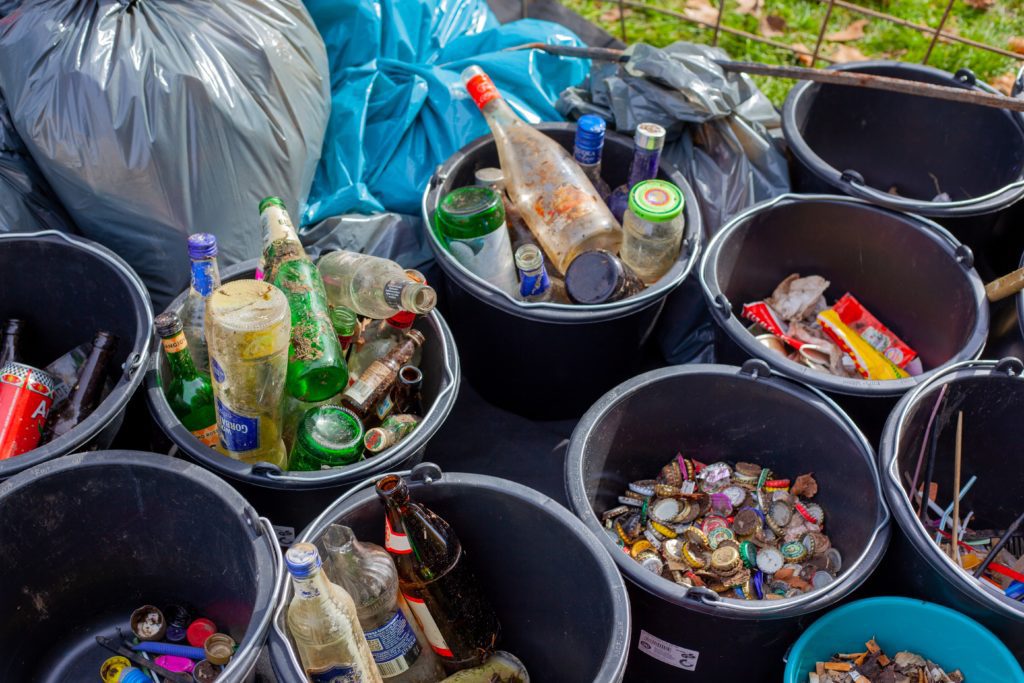
Chas DiCapua: One of the things in terms of retort around “What can we do?”, which is coming out more now in the scientific literature, is that there’s not a lot we can do individually. It’s not just about what impact one is going to have if they recycle or not. It’s really about how is it for us emotionally? What is it going to do for us if we recycle or if we don’t recycle? How does that feel and how does that jibe with our deepest values or not?
Being vulnerable is certainly a good way to connect.
Imagine getting into a conversation with someone like, “Hey, let’s do something Saturday morning.” And you say, “Ah, no, I’ve got to bring in my recycling Saturday morning so I can’t go.” Your friend is like, “Recycling? That doesn’t do anything. Haven’t you heard these studies that, number one, they don’t recycle it at all, they dump it in the ocean and, number two, as an individual you have no effect on climate change.” Instead of getting into an argument about, “Well, actually… ”, you might say, “I’m not sure if that’s totally true or not, but regardless, there’s the impact on the environment of what I’m doing, and then there’s the impact on me, what I’m doing, and this is something I feel like I need to do. I think it’s important. I think it helps.” You’re not talking about the other person, you’re talking about yourself and your own integrity. It can be inspiring to see someone acting with integrity and in a way that’s in line with their own values.
Dave Braun: What if someone dismisses my values as foolish or unimportant in a way that I find offensive?
Chas DiCapua: Like, “Yeah, I fly 20 times a year and I’m not going to stop. I don’t really care if species go extinct.” How do we actually feel when we hear that initially? Anger is a secondary emotion. Anger is never the first thing that we feel. Driving down the highway at 60 miles an hour, someone doesn’t see you and pulls into your lane and you almost get into an accident. You get really mad and start yelling at them. But what happened before that? Fear. Anger comes in after that. Because if we’re angry, there’s a sense of control. I can do something about this. If we can really connect, not just have a retort, but connect with what it’s like when we hear someone say that and tell them, “Wow, it really makes me sad to hear you say that. That’s so painful to hear.” We have to be genuine. And again, now it’s back to ourselves. We’re not arguing with them about if they’re wrong or right. It’s just, “Oh man, that’s so painful to hear.” Now it’s relational.
Dave Braun: Yeah, that really has a disarming quality.
Chas DiCapua: Yeah. And it’s real.

